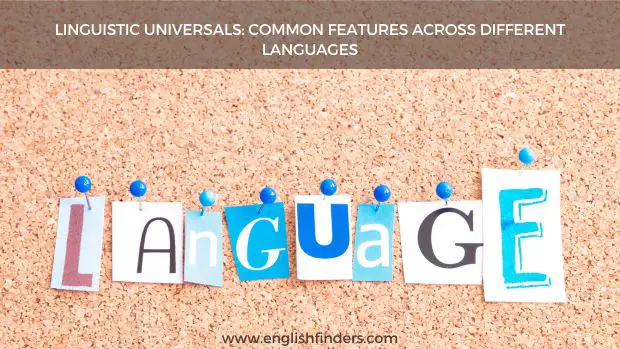Last updated on September 21st, 2024 at 11:04 pm
Definition of Language
Quick Navigation
What is the best way to communicate with yourself if you ask someone else? He will reply to you ‘definitely language’ without any hesitation or hindrance. So it’s easy to assume that language is the most influential way to communicate with each other.
But many of us want to answer the question ‘What is the definition of language’? Everybody can attempt this question and answer it somehow or another.
Nonetheless, we cannot find a single definition of language that has wholly explained the phenomenon in that particular question and given us satisfaction and stopped scholars, authors, and linguists from defining the exact answer to that question.
However, language is a complex human phenomenon, as all attempts to define it have proved inadequate. In brief, we can say, that language is an ‘original noise’ used in actual social situations by human beings.
Language is a system of conventional, spoken, or written symbols utilizing which human beings use to communicate.
Definition of Language by Different scholars
Let us now go through the definition of language delivered by different scholars, linguists, authors, and reference books.
Aristotle
Speech is the representation of the experience of the mind. According to Aristotle, language is a speech sound produced by human beings to express their ideas, emotions, thoughts, desires, and feelings.
Saussure
Language is an arbitrary system of signs constituted of the signifier and signified. In other words, language is first a system based on no logic or reason, and Secondly, the system covers both objects and expressions used for objects.
Thirdly objects and expressions are arbitrarily linked. And finally, expressions include sounds and graphemes used by humans for generating speech and writing, respectively, for communication.
Sapir
According to Sapir, language is a purely human and non-instinctive method of communicating ideas, emotions, and desires through a system of voluntarily produced sounds.
The definition of Sapir expresses that language is mainly concerned with only human beings and constitutes a system of sounds produced by them for communication.
Also, read➡
- Characteristics of language
- Child language development
- Types of Morphemes
- What is Psycholinguistics?
- Best grammar checker online for free
Bloomfield
The totality of the utterances that can be made in a speech community is the language of that speech community.
Bloomfield’s definition of language focuses on the utterances produced by all the community’s people and hence overlooks writing. Besides, he stresses form, not meaning, as the basis of language.
Bloch and Trager
According to Bloch and Trager, a language is a system of arbitrary vocal sounds through a social group that cooperates.
Their definition of language points out that language is an arbitrary system, vocal sounds, a way of communication, and collectivity.
Noam Chomsky
Noam Chomsky says that language is the inherent capability of native speakers to understand and form grammatical sentences. A language is a set of (finite or infinite) sentences, each finite length constructed out of a limited set of elements.
This definition of language considers sentences as the basis of a language. Sentences may be limited or unlimited and are made up of only minor components.
Derbyshire
Derbyshire says that language is undoubtedly a kind of communication among human beings. It consists primarily of vocal sounds, articulatory, systematic, symbolic, and arbitrary.
This definition of Derbyshire clearly utters, that language is the best source of communication, and it also portrays how human language is formed and the fundamental principles of language.
Lyons
According to Lyons, languages are the principal communication systems used by particular groups of human beings within the specific society of which they are members.
Especially Lyons points out that language is the best communicative system of human beings by particular social groups.
Wardhaugh
A language is a system of arbitrary vocal sounds used for human communication. This definition of language by Wardhaugh mainly insists on arbitrariness, vocal sounds, humans, and communication.
Patanjali
Indian linguist Patanjali utters that language is a human expression produced by different speech organs of human beings.
Through speech organs, humans produce several expressions converted to language.
Encyclopedia Britannica
According to the definition of Encyclopedia Britannica, language is a system of conventional or written symbols through which human beings, as members of social groups and participants in their culture, communicate.
In other words, it says that language is a system of communication through which human beings express themselves.
Thus, we can say that language is a system of communication or arbitrary vocal sounds through which human beings communicate and interact with each other in their everyday lives.
There are approximately 6,500 spoken languages available in the entire world used by different social groups and cultures.
References
Bloomfield Leonard (1914): An introduction to the study of language. New York: Henry Holt and Company.
Chomsky, Noam (2000): The Architecture of Language. Oxford: Oxford University Press.
Lyons John (1981): Language and Linguistics: Cambridge University Press.
Encyclopedia Britannica: Language | Definition, Characteristics & Change

Azizul Hakim is the founder & CEO of englishfinders.com. He is a passionate writer, English instructor, and content creator. He has completed his graduation and post-graduation in English language and literature.





Good
Thanks
Mind blowing thats the thing i was wondering for
Thank u!
Informative
Thank u!
excellent
Informative. Thanks
Welcome!
Awesome
Thank u!
Thank you so much❤️
Welcome!
Thanks a lot but, I was expecting to see the references of each definitions
For me I chose the definition of language of by Aristotle. Because I am more convince base on my own experience. Speech is the representation of the experience of the mind. When there is some thoughts in mind I can express this through words and with the help of action it is more understandable. My experienced in living Italy given me a new understanding about communicating. Because in order to communicate with them I also need to learn there language. It is more easy and comfortable when both person has the same language or they both know how to speak in another language. Thank you.
Please what are the strengths and weaknesses of these definitions by different linguistics
Thanks
Welcome!
I was asked to write a short review of different definition of language and honestly I don’t know what to write.any help please?
Try to understand this lesson carefully.
Comprehensive and intelligible. Good work.
Perhaps could you tell me who wrote this article and when? I was hoping to cite it in my paper.
Nvm